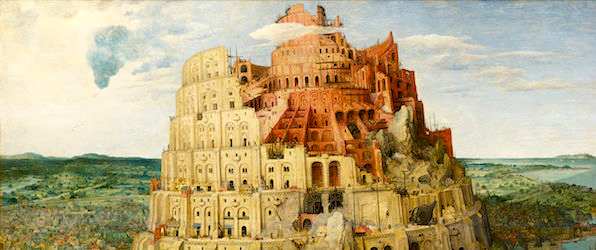The Rethinking of Religious Belief in the Making of Modernity

30 May – 1 June 2017, American University in Bulgaria
Keynotes: Wayne Hudson (University of Tasmania), Michael Hunter (Birkbeck, University of London), Jonathan Israel (Institute for Advanced Study, Princeton), & Lyndal Roper (University of Oxford)
The collapse of the communist bloc in 1989 put an end to processes of political identification based mainly, if not exclusively, on “strong” political ideologies. Accordingly, the past three decades have witnessed a rediscovery of the role of non-political factors (i.e. religion, culture, ethnicity, etc.) in shaping socio-political communities. These political and cultural phenomena also influenced academia, leading to a revaluation of “religion qua religion” as a legitimate and independent area of inquiry, as well as to a reassessment of its impact on socio-cultural, economic and political dynamics in the making of the modern world.
The relationship between religious belief and modernity has been interpreted in different ways by intellectual historians. Some historiographical currents argue that modern secular societies developed thanks to the gradual emergence of such ideas as “reasonableness”, “natural religion” and “toleration” among certain religious movements of reform and renewal from the Late Middle Ages to the twentieth century. Other sections of historiography maintain that the making of modernity was produced by a process of secularization, which benefited from the spread of intellectual and cultural currents that, in the Age of Enlightenment, held essentially atheistic and materialistic ideas in philosophy and republican, democratic views in politics. Still others have seen modernity as emerging both from and against a religious, and specifically Christian, worldview, given that the rethinking of several religious concepts, texts and institutions since the Renaissance eventually had secularizing consequences.
The relationship between ideas and political, economic and socio-cultural contexts also plays a significant role in the ongoing historiographical debate on religion and modernity. The twentieth century saw the opposition between the reductionist approach of social-scientific positivism, which considered ideas, including religious ideas, as mere epiphenomena produced by socio-economic factors, and a view of ideas as able to influence or even determine social and political dynamics. Nevertheless, in recent decades a growing number of historians have adopted a methodological approach that pays great attention to the historical conditions and intellectual contexts of philosophical and religious discourses. According to this approach, ideas play a prominent role as constitutive elements of historical periods, both in themselves and in interacting with social, economic, cultural and political factors.
At present, when controversial political issues are bringing renewed attention to the significance of religion at a global level, a deeper understanding of how the rethinking of religion and religious belief contributed to the making of the modern world may help to elaborate new theoretical frameworks for addressing current issues. Thus, “The Rethinking of Religious Belief in the Making of Modernity” aims to explore the historical, contextual, and methodological issues that intellectual history should take into account when examining the interactions between religious belief and philosophical, political and scientific concepts.
Programme
The final programme is now available to download.
Practical Matters
An updated info sheet with practical details about the conference is available to download. For inquiries, contact the convenor, Diego Lucci, via email at: dlucci@aubg.edu.
The conference poster can be downloaded here.
Conference committee: Michael Hunter (Birkbeck, University of London), James A.T. Lancaster (University of Queensland), Diego Lucci (American University in Bulgaria). Organized with the American University in Bulgaria.
